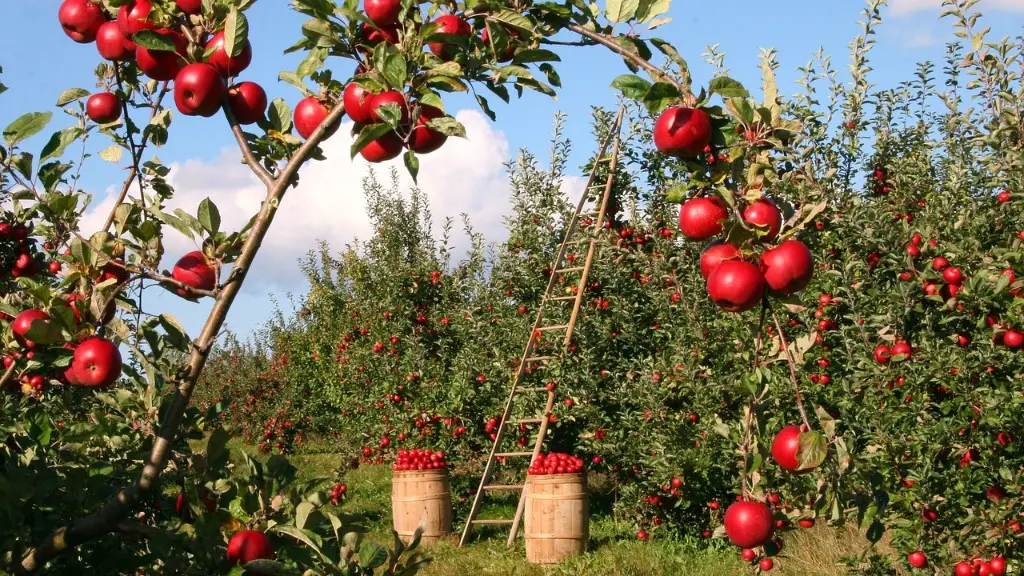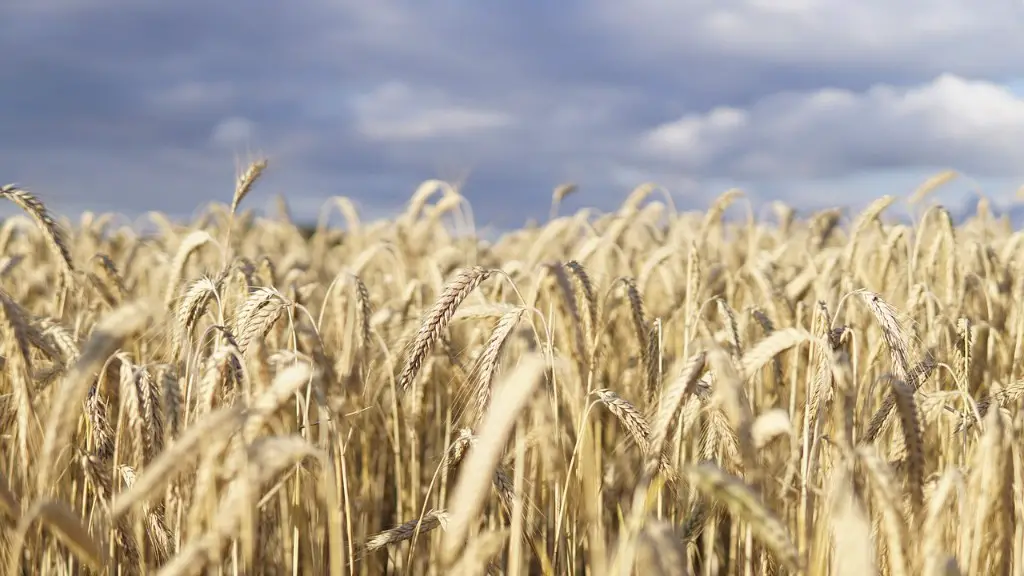When it comes to studying agriculture engineering, there are a few key things to keep in mind. First, it is important to have a strong foundation in mathematics and the sciences. This will give you the ability to understand the complex processes involved in agriculture. Secondly, it is important to be familiar with the equipment and machinery used in agriculture. This will help you to troubleshoot and repair any problems that may arise. Finally, it is essential to have strong communication skills. This is important for working with other professionals in the agriculture industry, as well as for communicating with farmers and other customers.
There is no one definitive answer to this question. However, some tips on how to study agriculture engineering may include studying various agricultural techniques, focusing on specific areas of interest within the field, and making use of available resources such as online forums and agricultural literature.
Which course is best for agriculture engineering?
B Tech in agriculture engineering is the best course for those who are very passionate and interested in the agriculture field. It has large career opportunities in India and also abroad. The course provides students with the necessary skills and knowledge to pursue a career in this field. It is a four-year course that includes both theoretical and practical components.
The average salary for an Agricultural Engineer is $78,500 per year in the United States. However, salaries for Agricultural Engineers can range from $29,500 to $106,500 per year, depending on experience and location. The average salary for Agricultural Engineers in the 25th percentile is $61,000 per year, while the 75th percentile salary is $87,000 per year. The top earners in the 90th percentile make $101,500 per year.
Is agricultural engineering a good degree
An AE degree is a great way to start your career in agricultural engineering. You will learn how to design and develop new processes, systems, and products. The job opportunities are plentiful and diverse. Currently, the demand for AE’s is at an all time high.
The Bachelor of Science in Agricultural Engineering is a five-year degree program that provides students with knowledge and skills on how to design agricultural machinery, agricultural equipment, and agricultural structures. This degree program is designed to prepare students for careers in the agricultural engineering field, and to provide them with the ability to apply their knowledge and skills to solve problems related to the production of food and fiber.
How long is agriculture engineering?
Agricultural engineering is a field of engineering that deals with the design, construction, and operation of systems and equipment used in agriculture. Agricultural engineers work in a variety of areas, including irrigation, drainage, soil conservation, farm structures, and crop production. They may also be involved in agricultural research or teaching.
The minimum duration for an undergraduate degree in agricultural engineering is 3 years, and the maximum duration is 4 years. The minimum duration for a postgraduate degree in agricultural engineering is 2 years, and the maximum duration is 2 years. Admission to an agricultural engineering program is typically based on the applicant’s performance in higher secondary (or equivalent) examinations. The minimum fees for an undergraduate degree in agricultural engineering are Rs 40,000, and the minimum fees for a postgraduate degree in agricultural engineering are Rs 1,00,000.
Aerospace engineering is the branch of engineering that deals with the design, construction, and science of aircraft and spacecraft. It is a highly specialized field that requires a great deal of training and education to enter.
Aerospace engineers are among the highest paid engineers, with an average salary of ₹8,00,000 to ₹10,00,000 per annum. This is because the field is so specialized and the demand for qualified engineers is high.
If you are interested in becoming an aerospace engineer, you will need to have a strong background in mathematics and physics. You will also need to be comfortable working with computers, as much of the work in this field is done using computer-aided design (CAD) software.
Do agricultural engineers travel a lot?
The work of an agricultural engineer is divided between time spent in an office and time spent in agricultural settings. In the office, agricultural engineers work on designing and planning projects. They also do research on improving agricultural methods and equipment. In agricultural settings, agricultural engineers work on putting their designs and plans into action. They may also troubleshoot problems with agricultural equipment. Agricultural engineers typically have a four-year degree in agricultural engineering.
Despite limited employment growth, there are still some opportunities for agricultural engineers. On average, there are about 100 openings each year. However, competition for these positions is expected to be strong.
Is it hard to be a Agricultural Engineering
The BS in Agricultural Engineering is a difficult course. Aside from the General Education subjects, most subjects involve the use of math and technical skills. Students who are not good in math will find it hard to deal with the BSAE program.
What are the responsibilities of an agricultural engineer?
An agricultural engineer typically has the following responsibilities:Designing and testing agricultural machinery and equipment.Developing farming methods to reduce production costs and improve crop yields.Planning and supervising construction of irrigation systems, farm buildings, and other structures.More items…•Apr 6, 2021
Is it hard to get a job as an agricultural engineer?
Though difficult, it is not impossible to find work as an agricultural engineer. Strong competition exists due to the small number of positions and the many qualified applicants.
How can I become an agricultural officer?
Step by Step Process to Apply for Agricultural Jobs:Step 1: Undergraduate Degree or Diploma in Agricultural Sciences.Step 2: Graduate Degree in Agricultural Engineering/Sciences.Step 3: Post Graduate Degree in Agricultural Engineering/Sciences.Step 4: Appear for Competitive Exams.More items…
How do I start my own agricultural business?
Here are some tips for starting an agricultural business.Passion. Passion is the common thread that weaves together the majority of successful entrepreneurs. … Market Research. … Prepare a Business Plan. … Licenses and Permits. … Budget Management. …
What is the highest paying job in agriculture?
There are many different types of jobs in agriculture, and the pay can vary depending on the position. Some of the highest paying jobs in agriculture include agricultural engineer, agronomist, agricultural food scientist, veterinarian, winemaker, farm manager, and agricultural sales representative. These positions typically require advanced education and experience, and the pay is commensurate with the level of responsibility and expertise required.
Agricultural engineering is a field of engineering that deals with the design, construction, and maintenance of systems and equipment used in agricultural production and processing. Agricultural engineers work in a variety of settings, including farms, food processing plants, and research laboratories.
There are six major areas of specialization within agricultural engineering:
Farm Power and Machinery Engineering: This specialization deals with the design and development of farm machinery and equipment, as well as the selection and management of farm power sources (such as tractors, engines, and electricity).
Soil and Water Engineering: This specialization deals with the conservation, development, and management of soil and water resources. Agricultural engineers in this specialization may work on projects such as irrigation systems, drainage systems, and erosion control.
Processing or Post Harvest Systems Engineering: This specialization deals with the design and development of systems and equipment used in the processing of agricultural products. Agricultural engineers in this specialization may work on projects such as grain drying, storage, and handling systems.
Farm Structures and Environmental Control Engineering: This specialization deals with the design and construction of farm buildings and the development of systems for environmental control (such as ventilation, lighting, and temperature control).
Forestry and Wood Product Engineering: This
What subjects are needed for agricultural engineering
The four JAMB subject combination for Agricultural Engineering are: English Language, Mathematics, Physics/Agriculture, Chemistry.
AB machinery and power engineering is a field of engineering that deals with the design, construction and operation of machinery and power plants. The field also covers the study of energy sources, such as fossil fuels, renewable energy and nuclear power.
Are agricultural engineers happy?
A solid majority of agricultural engineers enjoy their work environment, which is likely a big contributor to their satisfaction with the job overall. It’s a great career for people who want to help ensure that our food supply is safe and efficient!
Agricultural engineering is the field of study and application of engineering science and designs principles for agriculture purposes. Agricultural engineering combines the various disciplines of mechanical, civil, electrical, food science, environmental, software, and chemical engineering. Agricultural engineers use their knowledge of engineering, science, and mathematics to solve problems in the field of agriculture. They work with farmers, ranchers, and other agricultural professionals to improve the efficiency and safety of agricultural operations.
What grades do agricultural engineers need
The minimum entry requirements for BSc Agricultural Engineering are Mathematics: B+, Physics: B+ , Chemistry: B+. However, students may be admitted withAlternative B: Mathematics: B+, Physical Science: A-, Biological Sciences: A- provided they have completed at least one Group IV subjects.
There are a few possible reasons for this:
1) The job market may be saturated with environmental engineers, driving down wages.
2) The skills required for environmental engineering may be less specialized than for other engineering disciplines, making it easier for employers to find qualified candidates and resulting in lower wages.
3) Environmental engineering may be seen as less important or less valuable than other engineering disciplines, resulting in lower wages.
Conclusion
There is no one-size-fits-all answer to this question, as the best way to study agriculture engineering will vary depending on the individual student’s learning style and preferences. However, some tips on how to study agriculture engineering effectively may include reading textbooks and other course materials, attending lectures and labs, and participating in study groups or other extracurricular activities related to the subject. Additionally, it can be helpful to create a study schedule or plan to keep track of progress and ensure that all topics are covered before exams.
The study of agriculture engineering is important for those interested in working in the agricultural industry. By understanding the science behind the production of food, students can help make the agricultural industry more efficient and sustainable. With a strong understanding of agriculture engineering, students can make a positive impact on the world.





